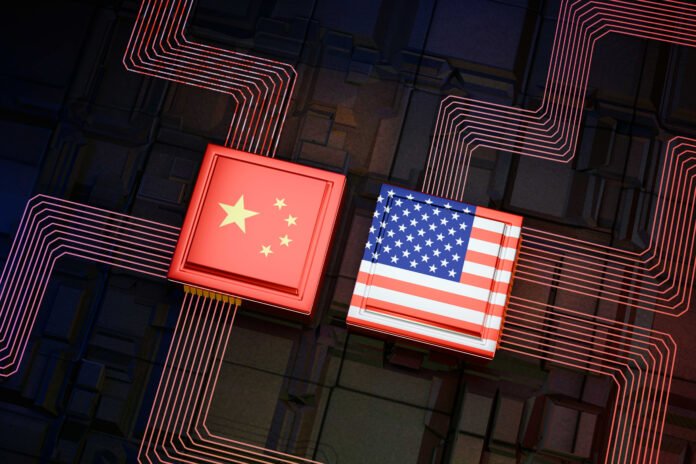US chipmakers will give the government 15% of revenue from advanced chip sales to China. President Donald Trump’s administration confirmed the arrangement, which involves Nvidia and AMD, as part of a broader export licensing deal. The move is unusual for a sitting president and adds another layer to the ongoing technology and trade tensions with China. Industry watchers believe this could influence future policy between the two nations. It may also reshape the way companies negotiate export permissions.
The agreement followed Washington’s decision to halt sales of Nvidia’s H20 chips to China earlier this year. Recently, US officials started issuing licenses that allow limited exports of the chips. Nvidia expects to restart deliveries soon, while AMD also secured approval for certain AI chip exports. Both companies accepted the 15% payment as a condition for receiving these licenses. Analysts say such terms could become a model for other export-sensitive industries. This raises questions about the future of US chipmakers in global markets.
Shares of Nvidia and AMD reacted negatively after the announcement. Nvidia fell 1.8%, while AMD dropped 3.3% in pre-market trading. Market analysts suggest the levy could pressure profit margins, especially if Chinese demand weakens. Some investors view the deal as an unpredictable political risk that adds to existing market volatility. Others see it as a calculated cost of doing business in sensitive sectors.
President Trump has repeatedly urged US corporations to invest more within the country. He has emphasized job creation and reduced reliance on Chinese supply chains. Recently, he called for Intel’s CEO to resign over alleged ties to Chinese firms. Supporters argue these moves protect national interests and secure technological leadership. However, critics claim the revenue deal undermines consistent trade policy by mixing security concerns with financial gain.
Geoff Gertz, a senior fellow at a Washington think tank, questioned the arrangement’s logic. He argued that if selling the chips is a security risk, sales should not happen at all. Conversely, if no risk exists, imposing a financial penalty seems unnecessary. Nvidia responded that it follows all US government rules for market participation. The company expressed hope that export controls will still allow US chipmakers to compete in China and other global markets. AMD has not commented on the arrangement.
China’s foreign ministry reaffirmed its opposition to US export controls. Officials accused Washington of using technology regulations to limit China’s economic growth. They have repeatedly labeled the restrictions as politically motivated. Reports indicate the Trump administration has not decided how to use the collected revenue. Commerce Secretary Howard Lutnick said the sales form part of broader negotiations with China, including rare earth supply agreements.
Lutnick also stressed the importance of keeping Chinese companies reliant on US technology stacks. He said this strategy maintains American influence even without selling the most advanced products. Nvidia earned $17 billion from China last fiscal year, representing 13% of total revenue. AMD reported $6.2 billion from China, accounting for 24% of its sales. The new levy could reshape these figures in the years ahead. Observers will watch closely to see if this arrangement becomes a template for future export deals involving US chipmakers.
For more business updates, visit DC Brief.


